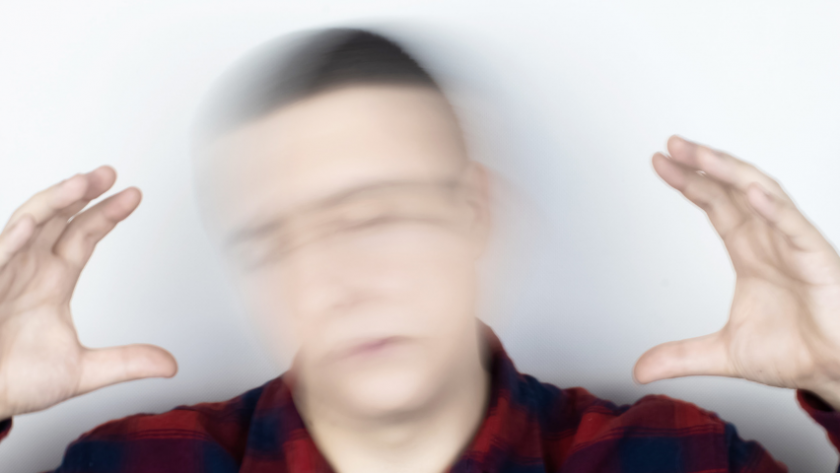Vestibular migraines are the most common type of migraine. They’re often referred to as “the dancing floor” or “the whirling room” because they make the sufferer feel as if they’re spinning. They’re characterized by a sense of vertigo, a spinning sensation, a sense of pressure in the head and neck, a feeling of fullness or heaviness, and a tingling sensation in the limbs.
What is Vestibular Migraine?
Vestibular migraines are a type of migraine that can make you feel like you are on a boat or in a rocking chair, and that comes from the inner ear since your inner ears are lined with tiny hair cells called the vestibular apparatus. When you have a vestibular migraine, your head feels tilted, and your vision can be blurred. You may also feel dizzy, nauseous, and even have a headache. While these symptoms are similar to most other types of migraines, vestibular migraines are often more severe.
Vestibular migraines are relatively common and can be debilitating. Migraine sufferers know that when they “go,” they may: feel sick, nauseated, dizzy, and lightheaded; experience extreme sensitivity to light and noise, and painful sensitivity to touch, all of which can last for hours; have trouble swallowing, and in extreme cases, vomit, and even lose consciousness.
Vestibular migraines have been described as an unusual kind of migraine, which tends to occur during the motion of a person’s head. Besides that, the effects and the pain of vestibular migraines are extremely similar to what you will feel when you have a migraine.
How to Control a Vestibular Migraine
One of the most popular and frightening symptoms of migraines is vertigo, a sense of dizziness that can make you feel like you’re spinning. The sensation can be so intense that some people even fear they are having a seizure. Mostly, what can help in this situation is a visit to Dr Timothy Steel or similar professionals in the field of neuroscience, who can assess your situation and give you accurate advice on how to get through it. Doing so can ease a lot of tension caused by not knowing what is happening to you. Symptoms like vertigo can be debilitating and can make other symptoms of a migraine worse, including nausea, vomiting, and numbness. Overcoming your fear of vertigo is possible, but first, you need to gain control over your vestibular system. Here are some ways to control a Vestibular Migraine.
– You need to determine and avoid triggers such as stress, certain foods, or not enough sleep.
Most people know about migraines, but far too few have a real idea of what causes them. Whether you know the culprit or not, there are things you can do to help manage the pain. There are supplements that can be taken, more on that below, but some people may also go the physical route and look into how practices like dry needling physical therapy can work, for example, so they can relieve the pain and help with any tension that could have a knock-on effect in their body.
– Seek the help of Osteopaths to tackle Vestibular migraines
Individuals experiencing vestibular migraines may explore options related to osteopath treatment for migraines in London (or elsewhere) as a complementary approach to managing symptoms. Osteopaths, specializing in manual therapy, can address musculoskeletal issues that may contribute to or exacerbate migraine symptoms. By focusing on the neck, jaw, or upper back, osteopaths aim to alleviate tension and improve mobility, potentially offering relief from associated discomfort. Put simply, osteopathic care may play a supportive role within a multidisciplinary approach to address the issues of vestibular migraines.
– You need to take supplements, such as riboflavin or magnesium.
Vestibular migraines are a migraine that can affect the inner ear and balance. They are more common in women than in men and rarely occur in children. Vestibular migraines are different from migraines in other areas of the brain, as they can be hard to diagnose. It is also a treatable condition, and most people respond well to treatment.
The use of supplements isn’t new, but a recent study published by the American Journal of Medicine looked at the effectiveness of supplements during pregnancy. The study found that supplement use during pregnancy was associated with a lower risk of pre-eclampsia. The researchers also found that women who took supplements during pregnancy were less likely to have gestational diabetes; women who took riboflavin supplements were less likely to have gestational diabetes. I’m not sure if supplements have the magical power they claim, but there is no harm in taking them just in case since the biggest risk in pregnancy is the development of gestational diabetes.
– Drink Take over-the-counter or prescription drugs to reduce pain or prevent headaches. While purchasing a prescribed medicine, you may not want to overpay for it. Therefore, it is recommended to check the street price of a drug (like the street value of Oxycodone) with the current online price that can help you buy the same medicine at a considerably low cost.
Migraines are a seriously painful and debilitating condition that affects millions of Americans. Unfortunately, they are not one of the most talked-about causes of chronic pain; they are often dismissed as a “normal” form of headache when in fact, they can be so debilitating they can prevent you from working, studying, or enjoying your family and friends.
Taking over-the-counter or prescription drugs to reduce pain or prevent headaches is a common practice.
Vestibular Migraine (known colloquially as Vomiting of the Brain) is a mystery of the inner ear affecting up to 25% of the population. It can be a debilitating, life-altering condition that has no cure currently available. It is temporary but can recur, so it is imperative to try to control the symptoms and to be aware of them if they come back.




